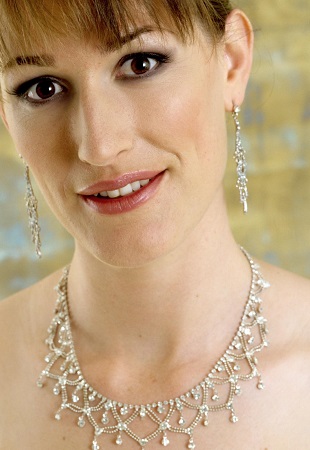In fact, Handel’s first ‘Israelite oratorio’, Esther, dates from
Handel’s early years in London. Like Acis and Galatea, which the
London Handel Festival had presented at
St. John’s Smith Square
a few days earlier, it was written for James Brydges (later Duke of
Chandos) and thought to have been performed at Cannons, Brydges’ Middlesex
estate, during 1718-20.
The libretto, which was probably fashioned by the poets Alexander Pope and
John Arbuthnot, is a dramatic adaptation of the Old Testament narrative, in
which the pious Esther acts to save the threatened Israelites from a pogrom
at the hands of their Persian oppressors, and Jean Racine’s play Esther of 1688 (which had been seen in London in 1715 in an
English paraphrase by Thomas Brereton), which emphasises the challenge to
God’s authority and the divine salvation of the Israelite people.
Musicologists and commentators have sought allegorical relevance in the
affirmation of Jewish courage and conviction but have been as likely to
suggest a parallel between the English Anglicans and the ‘Chosen People’ as
to see the Jewish minority as representative of the English Catholics
within a Protestant majority. When the worked received its ‘public’
premiere, in London in 1732, additional text by Samuel Humphreys enhanced
the connection to the Hanoverians through implied compliments to George II
and Queen Caroline.
This performance by the London Handel Orchestra at Wigmore Hall was
stylishly directed by Adrian Butterfield, who fulfilled a dual role as
violinist-conductor. In fact, with such an accomplished band of musicians
before him, I wondered if Butterfield might not have relinquished his
fiddle on this occasion; for, while the vocal standards were high, not all
of the young soloists were equally adept at creating character and
developing the narrative momentum. The numbers that were most successful
were the choruses, when Butterfield laid his violin aside and stood to
conduct, creating exciting drive and momentum.
Indeed, one might feel that Handel’s finest achievements in Esther are the choral sections: the contrasting joy - when the
Jews rejoice that Esther, a believer, has become Queen - and despair, when
they learn of Haman’s vicious decree that they should be annihilated; their
confident assertion, ‘He comes!’, that God will defend them; and the
magnificent triumphal chorus which closes the oratorio. Almost all of the
soloists joined to form the choral ensemble, producing a lively, bright
sound, with the strings’ generating zip and vigour and Darren Moore’s
trumpet adding majesty and jubilance to the final triumph: ‘The Lord our
enemy has slain’.
The instrumental contributions in the arias were no less affecting and
accomplished. Stephen Mills’ relaxed, pure tenor was graciously accompanied
by the violins’ gentle pizzicato and James Eastaway’s beautiful oboe
obbligato, as the First Israelite expressed the people’s unwavering trust
in ‘great Jehovah’, and Mills’ clean tone was equally well-suited to
persuading us of the condemned Mordecai’s faith. The horns (Gavin Edwards
and Clare Penkey) added relish to the glorification of Jehovah of the start
of Act 3.
Best of the soloists was Erica Eloff as the eponymous saviour of the
nation. The winner of the 2008 Handel Singing Competition, Eloff has
impressed before (
Adriano in Siria
,
Elpidia
) and on this occasion I was struck by the extended range of colours that
the South African soprano deployed to convey Esther’s love, fear, doubts
and hopes. She really made the text count in Esther’s first air, capturing
the deep sincerity of the queen’s prayer, and her angry dismissal of
Haman’s ‘flatt’ring tongue’ left none in doubt of Esther’s inner strength,
an impression which grew in the elaborated repetitions of the aria’s da
capo. Eloff even managed a convincing ‘faint’ when Esther quakes in fear
before Ahasverus as she pleads for Mordecai’s deliverance, before reviving
to invite her lord to a banquet at which she intends to expose Haman’s
vendetta with sufficient beauty of voice and manner to convince Ahasverus
to submit to his wife’s entreaties.
As Ahasverus, William Wallace - in common with some of the other soloists -
took a little while to judge the acoustic of Wigmore Hall, in which a
capacity audience was seated. Initially he forced his tenor a little too
much, but as Esther’s appeals worked their magic, Wallace’s voice relaxed
and charmed in ‘O beauteous Queen’. Baritone Josep-Ramon Olivé colourfully
revealed Haman’s vengeful exasperation in the oratorio’s opening aria,
expressing his indignant fury with plenty of bluster, though a little less
might have been more - the diction was rather muddy.
Timothy Morgan was also somewhat over-earnest as the First Priest of the
Israelites, which affected his tuning at times, but Morgan’s counter-tenor
is appealing, and he communicated with directness. As the Israelite Boy,
Camilla Harris displayed a lovely sheen and graceful phrasing in her single
aria, which was further enhanced by exquisite interplay from the pianissimo
violins, flute (Rachel Brown) and harp (Frances Kelly). Tenors Ben Smith
(Habdonah) and Laurence Kilsby (Officer/Second Israelite) completed the
accomplished vocal ensemble.
Claire Seymour
Handel: Esther HWV50
London Handel Orchestra: director/violin - Adrian Butterfield.
Esther - Erica Eloff, Ahasverus - William Wallace, Haman - Josep-Ramon
Olivé, Israelite Boy - Camilla Harris, Priest of the Israelites - Timothy
Morgan, Mordecai/First Israelite - Stephen Mills, Habdonah - Ben Smith,
Officer/Second Israelite - Laurence Kilsby.
Wigmore Hall, London; Thursday 22nd March 2018.
